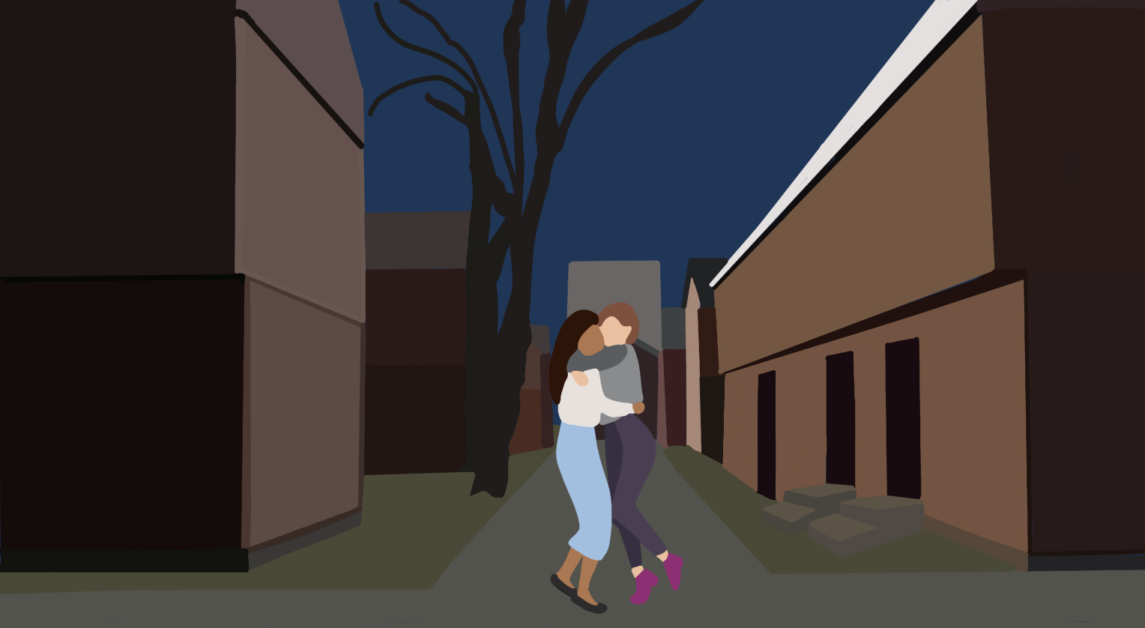It was mid-November and I was at the end of my rope. Cards on the table: I’d had a bad six months. I ended the spring with MonoStrep (a simultaneous bout of mononucleosis and strep throat) and started the fall with a cold-turned-lung infection-turned-perforated eardrum. Sexy, I know. Not everything was going wrong—I have a great family, great friends—but I spent most of my time in some kind of pain.
I thought a lot about pain in those six months. I thought about how nothing about my appearance indicated anything about the state of my interiority. I thought about how viscerally I experienced my own decay. I could feel my muscles grow weaker from lack of use, could feel the fragility of my reality as things like hearing and swallowing became more difficult. People told me over and over how much they wished they could shoulder some of the burden. In many ways they did, and for that, I’m immensely grateful.
But pain is isolating. It pulls you into the deepest depths of yourself. Usually, your body offers a helpful barrier between the interior embodied self that is “you” and the dirt and germs and death of the world. But when you’re sick and in pain, it can feel like your body betrayed you. Suddenly what is harmful is trapped within you, and you start to feel like your own enemy. You retreat inward to fight the battle.
This wasn’t really how I imagined my senior fall would go. I had visions of line dancing at Loretta’s and going on long runs through Boston. I thought I would become friends with strangers at bars and dance through crowded parties. I wanted to touch the Gasson bell and camp in the Mods. The biggest battle I planned on facing was my thesis.
In retrospect, I realize I had grand delusions of making up for lost time—rectifying what I missed during the COVID year(s) by having new experiences and meeting new people. I had romanticized how memorable and fun and freeing my last year of college could be. But that’s not the point of senior year, even if you’re healthy. The point of senior year is actually pretty unremarkable. It’s exactly the same as it was every year before now and will be every year after now. It’s showing up when someone you love is struggling, being nice to people, and taking joy where you can get it.
It was mid-November and I was at the end of my rope. Cards on the table: I’d had a bad six months. I was passing Robsham on my way to meet a few friends for the first time in a long time. It was dark and cold. I was alone. A drunk girl rushed past me, walking toward the Mods. And then she yelled “Hey!”
I turned around.
A huge smile on her face, she asked me, “Are you Grace? From the fascist rhetoric class?”
We spent the next 10 minutes talking about class and star signs and next semester. We hugged because that’s how you end a conversation when one or both women involved are drunk. She told me she would see me on Monday. She made my day.
That’s what senior year is about. It’s about soaking up the opportunities to show up for people in this community just like we have for the last three years. It’s about reaching outside of yourself to touch someone else. (In a metaphorical way guys, don’t be gross.)
In the end, when many of us will be in some kind of pain about leaving this place, it will be about fighting off the instinct to pull inward and instead find ways to lean into one another. It will be about learning how to help when you can’t shoulder the burden. Sometimes it will be about abandoning grand expectations to return to the fundamentals: trying to show up when someone is struggling, being nice to people, and taking joy where we can get it.
None of the flash, most of the substance.
Featured Graphic by Annie Corrigan/ Heights Editor













